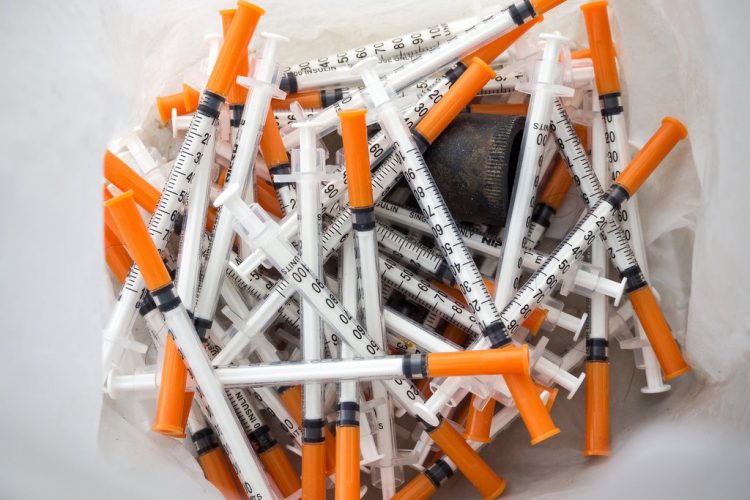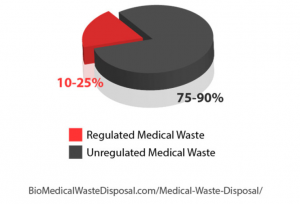In recent years, finding needle disposal bins mounted on the walls of your gas station or supermarket bathroom has grown increasingly common.
1 in 11 Americans are diabetic, many of whom require daily insulin injections to manage blood sugar levels. This, in addition to the ongoing opioid epidemic, has made it more and more necessary for companies, municipalities and any other establishment offering a public bathroom to take responsibility for separating used needles from its normal waste stream.
Why can’t we just throw used needles in our waste receptacles? Many states, including California and Massachusetts, have banned discarding needles in household trash. In these states used needles must be handled as regulated medical waste and treated by autoclave or incineration. Visit safeneedledisposal.org to view your state guidelines.
Whether or not this is required in your state, the larger issue surrounding mishandled needles is the harm they can inflict on people who handle our waste. Janitorial and waste management workers are at the highest risk of being stuck by needles placed in waste receptacles or left on bathroom floors.
Although the risk of contracting a disease from a single needle stick is low, the stress caused to an employee while being tested for bloodborne pathogen exposures can be debilitating.
In short, properly handling used needles in the workplace and in public spaces just seems to make sense. In recent news, massive brands like Starbucks, Pilot Flying J convenience stores, and other large retailers have recently installed in needle containers in store restrooms to protect their customers and employees.

In an addition to employee health, the mishandled needles expose companies to unnecessary liability. According to CDC reports of healthcare personnel treatment costs, the average cost of properly treating a needle stick injury is $3,042 per occurrence, including blood tests, post exposure follow ups, and associated labor.
These costs are especially unnecessary, considering that injuries can be drastically reduced by developing a needle disposal plan with the proper equipment and employee training.
For people suffering from diabetes or other diseases requiring daily injections, using needles is a part of every day life. By taking a proactive approach and implementing safer needle disposal practices we can greatly reduce needle stick injuries and improve health and safety in all public spaces.


